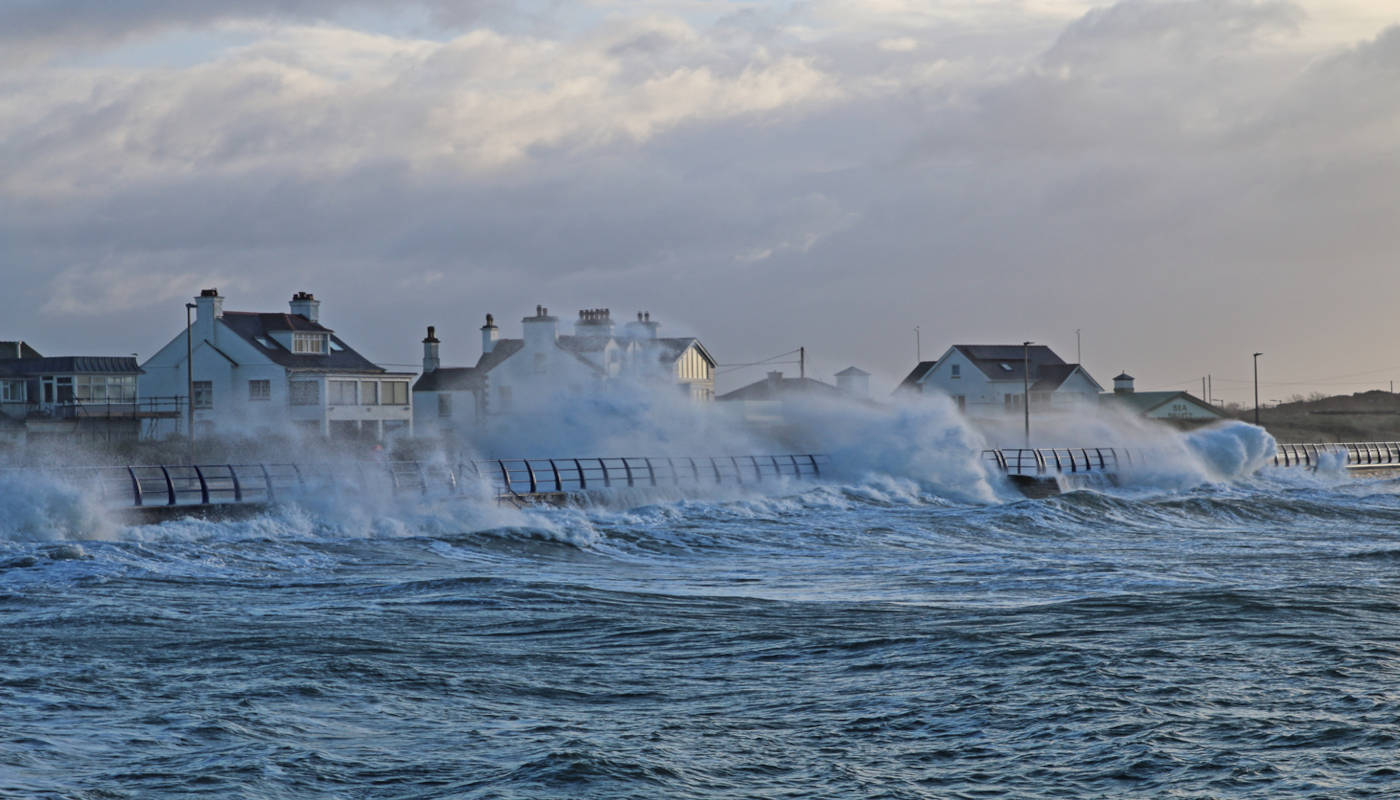
As we enter the peak of one the busiest US North Atlantic hurricane seasons in history, now is the time to reflect on the prospective effects of hurricanes on a major asset class of many financial institutions and consumers: residential mortgages. Indeed, growing hurricane intensity and frequency is expected to have significant consequences, not only for homeowners but also for insurance companies and investors in mortgage credit instruments.
Underscoring the magnitude of potential risk for the mortgage sector, CoreLogic estimates that 7.4 million residential and multifamily properties - accounting for approximately $1.8 trillion in replacement costs - will be affected by storm surge from this season's projected hurricanes in the U.S.
For risk professionals in the mortgage space, this raises many important questions. How high are mortgage default rates likely to rise, for example, in the short-term and long-term? What are the implications for insurers, as well as for mortgage credit investors? And could this affect risk-based capital requirements and loan loss reserve estimates for government-sponsored entities (GSEs) like Fannie Mae and Freddie Mac?
The Power of Hurricanes, and Lessons from Katrina and Sandy
Before delving further into all of the possible consequences of growing hurricane intensity and frequency, it's important to gain a better understanding of the personal and economic havoc wreaked by these natural disasters.

Considerable meteorological research suggests that the frequency and intensity of North Atlantic hurricanes is on the rise. The destructive power of these storms is well documented. In addition to deaths and injuries, they cause significant economic losses, business disruption and life-changing dislocation for individuals and families.
The Congressional Budget Office estimates that average annual economic losses from hurricanes in the United States are $54 billion, with losses from the residential sector accounting for $34 billion of that amount. Moreover, 85% of damage caused by hurricanes is associated with hurricanes rated 3-5 on the Saffir-Simpson Hurricane Wind Speed Scale.
Extensive modeling of hurricanes suggests that while the overall frequency of hurricanes in the future may actually decline over the next century, the frequency and intensity of the strongest hurricanes - i.e., those rated Category 4 and 5 - are likely to increase significantly over this period. At the upper end, one study suggests that, by the turn of the next century, the aggregate strength of North Atlantic hurricanes could rise by 300%.
The linkages between hurricanes and mortgage default are emerging from a variety of empirical studies on this topic. Fannie Mae, for example found mixed results when reviewing the impacts from two major hurricane events: Hurricanes Katrina (August 2005) and Sandy (October 2012). In the months immediately following Hurricane Katrina, for instance, loans delinquent 180 days or more (D180+) peaked at a rate approximately five times the D180+ rate in the months leading up to the storm. In contrast, Fannie Mae found that D180+ rates following Hurricane Sandy remained relatively steady.
Impact on Defaults and Delinquency
Based on a sample of 100,000 mortgage loans (purchased by Freddie Mac and originated between 2000-2013), my latest empirical research focuses on understanding the specific impacts of hurricane intensity and frequency on mortgage default. Augmented with data on hurricanes from the FEMA Disaster Declarations Summaries, models used in my study estimated a borrower's probability to default - as defined by loans that become delinquent at either 90 days or more (D90+) or D180+.
In counties where properties were located in the path of hurricanes, the study yielded statistically significant findings on the effects of the frequency and intensity of hurricanes on delinquency rates, defaults and other risk factors.
At properties that experienced a category 3, 4 or 5 hurricane during the life of a loan, loans were 13 - 18 percent more likely to become 90 days or 180 days delinquent (or more) - respective to other loans in the same locations, controlling for all other risk factors. Moreover, loans that experienced more than 12 hurricanes during a loan's life were two times more likely to default than loans experiencing an average (over time) of one hurricane.
Parting Thoughts: Long-Term Implications
Sensitivity analysis performed on the results further suggest that if recent meteorological simulations regarding the trajectory of major hurricanes over the next several decades bear out, mortgage default rates could increase 14-15 percent above current rates, holding all else constant. These results have major implications for mortgage and insurance markets and homeowners.
First, mortgage default risk in areas with a higher incidence of major hurricanes will likely rise significantly over time. Second, investors in mortgage credit risk from these locations will face higher default losses in the future. Third, private investors in GSE credit-risk transfer (CRT) securities could experience higher credit losses associated with pools of loans from hurricane-prone areas. (Investors in lower-rated tranches would be particularly impacted, given that they are exposed to losses earlier than more highly-rated tranches.)
What's more, hurricane risk impacts on default are likely to be underpriced at GSEs like Fannie Mae, Freddie Mac and the FHA - unless they factor hurricane risk into their initial pricing of credit risk. Over time, such underestimations could also affect risk-based capital requirements and loan loss reserve estimates for Fannie Mae and Freddie Mac.
Clifford Rossi (PhD) is Professor-of-the-Practice and Executive-in-Residence at the Robert H. Smith School of Business, University of Maryland, and a Principal of Chesapeake Risk Advisors, LLC. He has nearly 25 years of experience in financial risk management, having held a number of C-level positions at major banking institutions. Prior to his current posts, he was the chief risk officer for Citigroup's North America Consumer Lending Division.